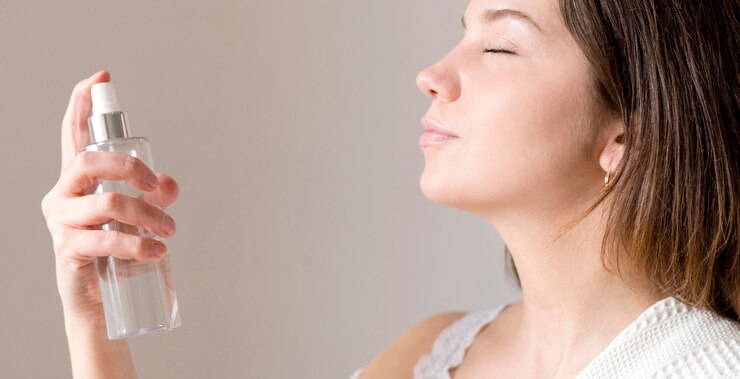
Why Hypochlorous Acid is Effective for Acne Treatment
Acne is one of the most common skin concerns, affecting people of all ages. While many treatments exist, Hypochlorous Acid (HOCl) has gained significant attention for its natural ability to manage acne.
This powerful ingredient has been used for various skincare purposes, but its role in acne treatment is particularly impressive.
In this article, we will explore why Hypochlorous Acid is effective for acne treatment and how its unique properties make it a game-changer for those seeking clear, healthy skin.
What is Hypochlorous Acid?
Hypochlorous Acid is a naturally occurring substance that the body produces as part of the immune response. It is a weak acid, which has powerful antimicrobial properties.
Our white blood cells use it to combat infection by killing bacteria and viruses in the body.
When applied topically, HOCl can help fight off harmful bacteria and reduce inflammation, making it an effective solution for acne-prone skin.
Unlike other harsh chemicals or acids commonly found in acne treatments, Hypochlorous Acid is gentle on the skin, making it suitable for various skin types, including sensitive skin.
It is non-irritating and does not disrupt the skin’s natural balance, which is crucial for maintaining a healthy skin barrier.
How Does Hypochlorous Acid Work for Acne?
Acne is primarily caused by an overproduction of sebum (oil), clogged pores, and the presence of bacteria like Propionibacterium acnes (P. acnes).
These bacteria thrive in the blocked pores, leading to inflammation and the formation of pimples, cysts, and pustules. Here’s how Hypochlorous Acid works to address acne effectively:
1. Antibacterial Properties
One of the main reasons why Hypochlorous Acid is effective for acne treatment is its powerful antibacterial action.
Hypochlorous Acid targets and kills the acne-causing bacteria on the skin’s surface. By eliminating P. acnes and other harmful bacteria, it helps to reduce the formation of pimples and breakouts.
2. Reduces Inflammation
Acne often results in red, inflamed skin. Hypochlorous Acid has anti-inflammatory properties that help calm and soothe the skin.
When applied, it reduces swelling and redness, promoting a clearer, more even complexion. By controlling inflammation, it not only helps with current acne but also prevents future breakouts from becoming inflamed.
3. Promotes Skin Healing
In addition to fighting bacteria and reducing inflammation, Hypochlorous Acid helps to promote the skin’s natural healing process.
This is particularly beneficial for individuals with active acne, as it helps to heal the damaged skin caused by pimples and cysts.
By accelerating wound healing, it can minimize scarring and hyperpigmentation that often result from acne breakouts.
4. Supports the Skin’s Natural Barrier
Hypochlorous Acid is gentle and does not strip the skin of its natural oils, which is a key factor in why it works for acne treatment.
Many acne treatments, especially those containing benzoyl peroxide or salicylic acid, can leave the skin feeling dry and irritated.
Hypochlorous Acid, on the other hand, supports the skin’s natural moisture barrier, ensuring it remains hydrated and balanced.
This is essential for preventing the skin from becoming over-dry or irritated, which can lead to more breakouts.
Benefits of Hypochlorous Acid Spray for Acne
Hypochlorous Acid can be applied to the skin in various forms, but the most popular and effective method for acne treatment is using a Hypochlorous Acid spray.
This spray allows for easy, controlled application, ensuring the skin receives an even amount of the solution. Here are some benefits of using a Hypochlorous Acid spray for acne:
1. Easy to Use
Hypochlorous Acid spray is simple to apply and does not require extensive preparation.
Simply spray it on the affected areas of the skin, and it’s ready to go. The spray format also makes it convenient for targeting large areas of the face or body.
2. Quick Absorption
The fine mist of a Hypochlorous Acid spray is easily absorbed by the skin. This allows the active ingredients to penetrate deep into the pores, targeting the root cause of acne.
Unlike other treatments that may leave a residue on the skin, Hypochlorous Acid absorbs quickly and doesn’t leave behind any greasy or sticky feeling.
3. Non-irritating and Gentle
As mentioned earlier, Hypochlorous Acid is non-irritating and gentle, which is crucial for acne-prone skin. Many traditional acne treatments can be harsh, causing dryness, redness, or even peeling.
Hypochlorous Acid, however, provides a calming effect on the skin, making it suitable for daily use.
4. Can Be Used Throughout the Day
Unlike many acne treatments that are recommended for use only once or twice a day, Hypochlorous Acid spray can be used multiple times a day without the risk of over-drying or irritating the skin.
This allows users to maintain clear skin by continuously managing bacteria and inflammation throughout the day.
How to Use Hypochlorous Acid Spray for Acne Treatment
Using Hypochlorous Acid spray for acne treatment is easy. Here’s a simple step-by-step guide on how to incorporate it into your skincare routine:
1. Cleanse Your Skin
Before applying Hypochlorous Acid spray, ensure your skin is clean. Use a gentle cleanser that won’t strip the skin of its natural oils. After cleansing, gently pat your face dry with a clean towel.
2. Apply the Hypochlorous Acid Spray
Hold the spray a few inches away from your face and spritz it evenly onto the affected areas. If you are targeting acne on specific areas, such as pimples or cysts, you can spray the solution directly onto those spots.
3. Let It Absorb
Allow the Hypochlorous Acid to absorb into your skin for a few moments. It should quickly dry and leave no sticky residue. There’s no need to rinse it off.
4. Follow with Moisturizer
After applying Hypochlorous Acid, follow up with a moisturizer to lock in hydration. Even though HOCl is gentle and doesn’t strip the skin, maintaining hydration is important for healthy skin.
5. Use Regularly
For the best results, use the Hypochlorous Acid spray consistently. Apply it twice a day—once in the morning and once before bed. If you experience any irritation, reduce usage to once a day or every other day.
Is Hypochlorous Acid Safe for All Skin Types?
Yes, Hypochlorous Acid is safe for all skin types, including sensitive skin. Its gentle, non-irritating nature makes it an ideal option for those who struggle with acne but have sensitive or reactive skin.
It does not cause the dryness or irritation associated with many harsher acne treatments.
However, as with any skincare product, it’s important to do a patch test before full use. Apply a small amount to an inconspicuous area of your skin and wait 24 hours to ensure you don’t experience any adverse reactions.
Conclusion:
Hypochlorous Acid spray is a powerful and effective treatment for acne. Its antibacterial, anti-inflammatory, and healing properties make it an excellent choice for those struggling with acne and other skin issues.
By integrating this natural solution into your skincare routine, you can help reduce acne breakouts, soothe inflammation, and promote healthy, clear skin.
With its ease of use, non-irritating formula, and ability to support the skin’s natural barrier, Hypochlorous Acid is quickly becoming a top choice for acne sufferers.
Whether you have sensitive skin or need an effective solution for stubborn acne, Hypochlorous Acid spray can be a game-changer in your skincare regimen





